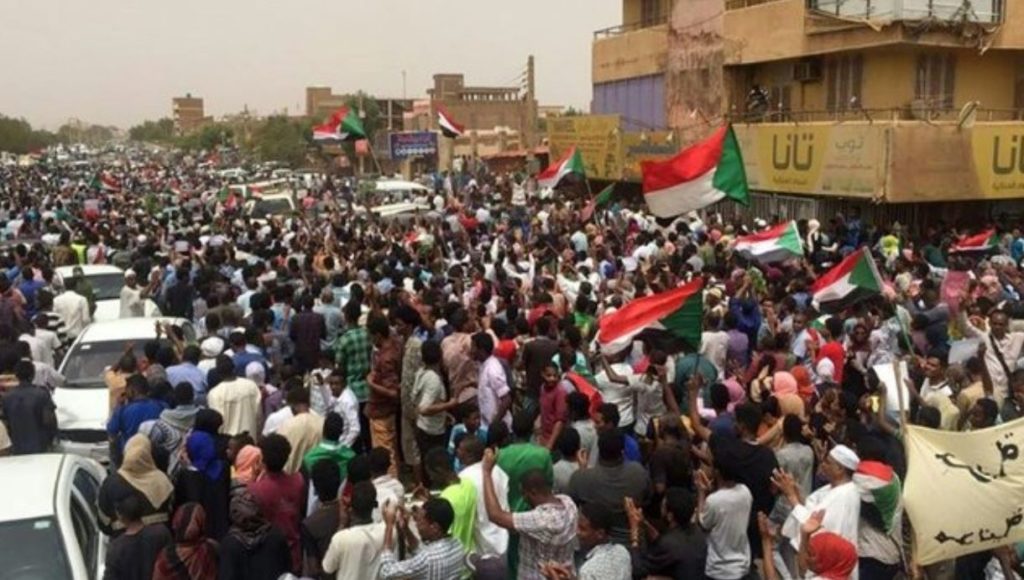As the conflict in Sudan rages between rival military factions, over 700 people have been killed and over 100,000 people have fled the country. According to a UN report, people have fled their homes in Blue Nile and North Kordofan States and across Darfur, with refugees and returnees having arrived in Chad, Egypt and South Sudan.
The conflict between the Sudanese Armed Forces (SAF) and the Rapid Support Forces (RSF) is having a direct and detrimental effect on the nation’s youth. The war is forcing children out of school, preventing them from receiving an education, let alone a normal life.
According to a recent report, UNICEF, the U.N. children’s agency, has disclosed that 368,000 children have been forced from their homes in Sudan, and a further 82,000 have fled into neighboring states. The report also estimates that 190 children were killed in the first 10 days of the war, and 1,700 injured.
According to UNICEF country director in Sudan, Mandeep O’Brien, the conflict has caused nationwide closure of schools and educational institutions having a toll on children.
“Before the conflict, we already had 7 million children, between 6 and 18 years of age, of school-going age, out of school. We already had 611,000 kids under five suffering from severe acute malnutrition, with 3 million kids under five suffering overall from malnutrition…
“Children are under enormous distress, as you can imagine, particularly in the hot spot locations of this conflict due to continuous bombardment and shooting. We have seen this and experienced this firsthand,” she said.
The United Nations Children’s Fund recently said Sudan’s war has displaced at least 450,000 children from their homes, with tens of thousands fleeing into neighboring countries. Aid groups say these refugee children are being deprived of education, without which they are at higher risk for exploitation, child marriage and recruitment into armed groups.
In April, the World Council of Churches published a statement asking, “What about the future of our children?”
The statement further notes that the dangers of continuing the conflict will inevitably lead the country to a very dangerous turn, resulting in many lives lost due to lack of food, the spread of diseases, insecurity, and more.
Sudan’s children are suffering from lack of education and many suffer from post-traumatic stress disorder. Conflicts destroy not only the country physically, but also the mental health of the next generation. Anyone who has grown up in a conflict-ravaged country will bear the emotional scars for years to come.
Children fleeing the violence in Sudan are arriving in South Sudan and Egypt showing signs of acute distress and shock with some withdrawn, others angry and some becoming aggressive, according to a report by humanitarian organization Save the Children.
Save the Children teams are providing mental health and psychosocial support as well as essential supplies to families arriving at border points in South Sudan and Egypt, some of whom have spent up to 15 days on perilous and costly journeys to seek safety.
Micah Yakani, a Save the Children South Sudan Child and Youth Protection Coordinator, said many children were very stressed when they arrived and warned of an increase in hunger and malnutrition due to food shortages at the crossing point.
“Children are very stressed. This is seen through unusual behaviour such as fighting each other while some are withdrawn and stay alone. Adolescent children are also manifesting violent behaviours such as anger, desperation, talking aggressively.”
The European Union is another entity that has stepped up its humanitarian assistance to help those most in need, by setting up a Humanitarian Air Bridge to deliver essential supplies, providing emergency assistance to the region, rapidly deploying EU humanitarian experts to border crossing points, mobilising the EU Civil Protection Mechanism, and advocating for unimpeded humanitarian access and compliance with international humanitarian law.
These combined efforts on the ground could at least alleviate to some degree the suffering borne by Sudan’s youth. The UN can and should step up its humanitarian efforts. Words and condemnations make no difference on the ground as the parties involved obviously do not respect the UN or international law.
For example, in April, UN Secretary-General António Guterres called upon the warring parties to “put the interests of the people front and centre, respect the ceasefire and establish the permanent cessation of hostilities.” He said the conflict “will not and must not be resolved on the battlefield with the bodies of Sudan’s children, women and men,” emphasizing that the United Nations stands with the Sudanese people.
While his message was clear, his calls fell upon deaf ears. For Sudan’s children to have a chance of emerging from this conflict relatively unscathed and in good mental and psychological condition, they will need all the assistance they can get from governments, the UN, and humanitarian organizations.
Become a Patron!
Or support us at SubscribeStar
Donate cryptocurrency HERE
Subscribe to Activist Post for truth, peace, and freedom news. Follow us on SoMee, Telegram, HIVE, Flote, Minds, MeWe, Twitter, Gab, What Really Happened and GETTR.
Provide, Protect and Profit from what’s coming! Get a free issue of Counter Markets today.


Be the first to comment on "Sudan’s Conflict Directly Affects The Young Generation"